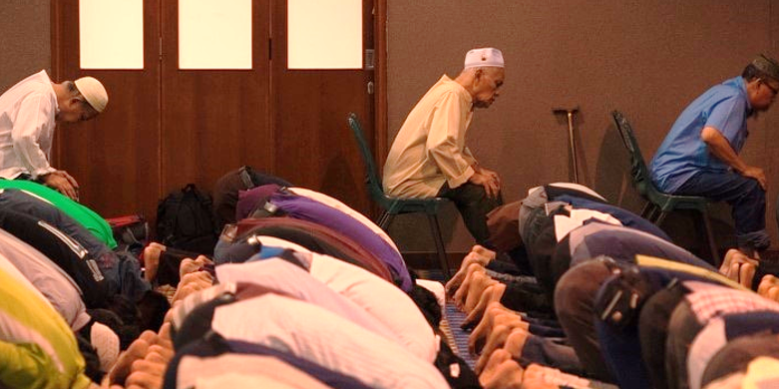Answered by Shaykh Omar Subedar
Question:
Kindly advise whether one is required to stand during ṣalāh (ritual prayer) if they cannot prostrate (perform sujūd).
I am able to stand comfortably and do the bowing (rukū’). Sujūd (prostration) is also not a problem but sitting in between the sujūd is not possible as I have to bend my knees. Therefore, to avoid sitting between sujūd I am forced to take a chair as an alternate. Kindly guide me on this matter.
Answer:
بِسْمِ اللَّـهِ الرَّحْمَـٰنِ الرَّحِيمِ
May Allāh restore your health and grant you ease and comfort. In the scenario that you have presented it would be recommended that you to perform your ṣalāh (ritual prayer) while being seated and substitute the rukū’ (bowing) and sujūd (prostration) with motions by your head and upper body making the motion for sujūd lower than the motion for rukū’.
The well known jurist, Imam Abū Bakr ibn Mas’ūd Al-Kāsānī (may Allāh have mercy on him) has written,
“If a person is able to stand but unable to perform rukū’ and sujūd they will pray with motions while being seated. If they pray with motions while standing, it will be sufficient however it is not preferable [to do as such].”
He writes further on,
“Sujūd (prostration) is the foundational practice [of ṣalāh – ritual prayer] while the remaining postures are connected to it. It is for this reason that sujūd without standing is [religiously] relevant such as the prostration of recital [sujūd al tilāwah] however standing is of no [religious] relevance without sujūd. Rather it has not even been legislated without it. Hence when the foundational [practice is dropped] then the practices connected to it are also dropped out of necessity. It is for this reason that rukū’ is dropped [i.e. excused] from a person who is excused from sujūd, even if they are able to perform rukū’. Rukū’ holds the position of being connected to sujūd.” (See: Badāi’ Al Ṣanāi’)
And Allāh Knows Best







